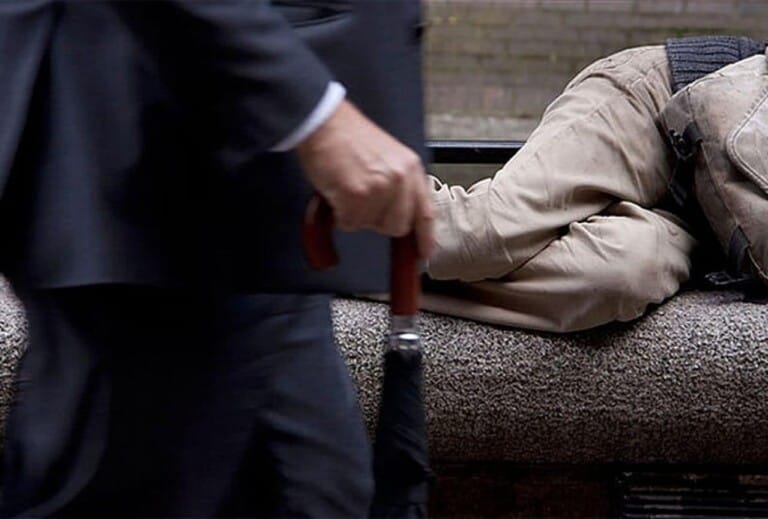Tony Blair’s Project (1997-2007)
In its 1997 General Election Manifesto, entitled New Labour: Because Britain Deserves Better, ‘New’ Labour laid out its case to the electors :
I want a Britain that is one nation, with shared values and purpose, where merit comes before privilege, run for the many not the few …(p. 1)
We are a broad-based movement for progress and justice. New Labour is the political arm of none other than the British people as a whole. Our values are the same : the equal worth of all, with no one cast aside … (p. 2)We will make education our number one priority … (p. 6)
We will promote personal prosperity for all … (p. 10)
We will get the unemployed from welfare to work … (p. 18)
We will save the NHS ,.. (p. 20)
We will be tough on crime and tough on the causes of crime …(p. 22)
We will strengthen family life .,. (p. 24)
This programme seemed to strike a chord among electors after 18 years of Conservative Government and the Labour Party was swept into office. In 2001, once again the Labour Party laid out its plans for a second term in its Manifesto entitled New Labour New Britain- Ambitions for Britain.
My passion is to continue the modernisation of Britain in favour of hard-working families, so that all our children, wherever they live, whatever their background, have an equal chance to benefit from the opportunities our country has to offer and to share in its wealth… (p. 3)
Britain is better off than in 1997 – but our ambition is to widen the winners’ circle so more people share in the benefits of economic growth… (p. 13)
The whole country depends on high-quality public services. We have a ten-year vision for Britain’s public services : record improvement to match record investment, so they deliver high standards to all the people… (p. 17)
Once again Labour obtained a very large majority of seats in the House of Commons. But what specifically have the two Labour governments led by Tony Blair managed to achieve?
- The introduction of a minimum wage
- A significant reduction in unemployment
- A strong economy
- The ‘solid’ foundations of change in the consideration of the public services, especially education and the NHS.
In 1999, the Government published Opportunity For All: Tackling Poverty and Social Exclusion (Cm 4445) :
When we came into office, we inherited a country where one in five children lived in a household where no one worked, thousands left school without basic skills… For many people, the past two decades have brought rising prosperity and widening opportunities.
But far too many individuals, families and communities have not shared in the benefits of economic growth. And for many, disadvantage has been passed from generation to generation as children inherit poverty from their parents … it is that injustice and waste that the Government is determined to tackle…
In particular, the Prime Minister has set out our aims of eradicating child poverty within 20 years, of confronting the waste of long-term unemployment, and of bringing deprived neighbourhoods up to the standards that the rest of Britain takes for granted – cutting crime, increasing employment, improving health and housing.
In June 2001, just after the Labour victory, Chancellor Gordon Brown vowed that no child should be left behind as he sought to tackle the question of deprivation among the 3.2m British children living below the poverty line.
He claimed that during the first Labour period of office, 1m children had been lifted above the poverty line: the aim was to lift a further 1m above the line by 2005. (Source)
In April 2002, new figures undermined Labour’s boasts of having already achieved the success mentioned above: the real figure should, according to official figures, be nearer half a million and not 1m. (Source)
At the budget in April 2002, the Labour Government increased National Insurance contributions and also increased investment in the NHS.
Gordon Brown (2007-2010)
During his Labour leadership campaign, Brown proposed some policy initiatives which he called “the manifesto for change”.
The manifesto included a clampdown on corruption and a new Ministerial Code, which set out clear standards of behaviour for ministers. Brown also stated in a speech when announcing his bid that he wants a “better constitution” that is “clear about the rights and responsibilities of being a citizen in Britain today”.
He planned to set up an all-party convention to look at new powers for Parliament and to look at rebalancing powers between Whitehall and local government. Brown said he would give Parliament the final say on whether British troops are sent into action in future.
Brown said he wanted to release more land and ease access to ownership with shared equity schemes. He backed a proposal to build new eco-towns, each housing between 10,000 and 20,000 home-owners – up to 100,000 new homes in total.
Brown also said he wanted to have doctors’ surgeries open at the weekends, and GPs on call in the evenings. Doctors were given the right to opt out of out-of-hours care in 2007, under a controversial pay deal, signed by then-Health Secretary John Reid, which awarded them a 22 per cent pay rise in 2006. Brown also stated in the manifesto that the NHS was his top priority.
On 5 June 2007, just three weeks before he was due to take the post of Prime Minister, Brown made a speech promising “British Jobs for British workers”. Brown reiterated that promise at the Labour Party’s annual conference in September, which caused controversy as he coupled this with a commitment to crack down on migrant workers.
The Conservative Party, led by David Cameron, promptly pointed out that such a commitment was illegal under EU law.
David Cameron (2010-2016)
In response to the Great Recession, Cameron undertook the austerity programme. This was a deficit-reduction programme consisting of sustained reductions in public spending, intended to reduce the government budget deficit and the welfare state in the United Kingdom. The National Health Service and education have been “ringfenced” and protected from direct spending cuts.
Together with Chancellor George Osborne, Cameron aimed to eliminate the structural deficit (i.e. deficit on current spending as opposed to investment) and to have government debt falling as a percentage of GDP. By 2015 the deficit, as a percentage of GDP, had been reduced to half of what it was in 2010, and the sale of government assets (mostly the shares of banks nationalised in the 2000s) had resulted in government debt as a proportion of GDP falling.
In 2006 Cameron described poverty as a “moral disgrace” and also promised to tackle relative poverty. In 2007 Cameron promised, “We can make British poverty history, and we will make British poverty history”. Also in 2007, he stated, “Ending child poverty is central to improving child well-being”.
The Cameron government plans welfare cuts which official government advisors warn are set to increase child poverty. The Children’s Commissioner expects the number of children in poverty to rise by roughly one million over five years.
Polly Toynbee claimed in The Guardian that reductions in child tax credits were likely to increase child poverty among working families with low wages. Anna Feuchtwang of the National Children’s Bureau claims too little was done to implement the Conservative manifesto promise to give every child the best start in life.
Gareth Jenkins of Save the Children fears the effect cuts will have on the life chances of children in poor families, saying “Our biggest concern would be that increases in financial hardship for the poorest working families will only further worsen the chances of their children to do well at school and escape the circumstances they were born into – a key goal of the Conservative government.”
In 2015, George Eaton writing in the New Statesman claimed the two-year freeze in working-age benefits by the Cameron government will increase poverty among wage earners. He claimed that the removal of housing benefits for those between 18 and 25, reductions in housing benefits for people with spare bedrooms, caps on housing benefits and other changes will further add to poverty and homelessness.
The July 2015 budget under the Cameron government reduced funds to help disabled people find work. For example, Jamie McCormack, who is deaf and physically disabled, wrote in The Independent that removing specialist advisers from job centres and ending funding for tailored support reduced his work opportunities.
He also believes ending student maintenance grants prevents him from going to university. According to him and Anoosh Chakelian of the New Statesman, the removal of ‘the disability element of Employment and Support Allowance (ESA)’ will cause stress and hardship to many disabled people.
Under Cameron’s leadership, poverty is no longer classified by a family’s income, but as to whether a family is in work or not. Considering that two-thirds of people who found work were accepting wages that are below the living wage (according to the Joseph Rowntree Foundation), this has been criticised by anti-poverty campaigners as an unrealistic view of poverty in Britain today.
Theresa May (2016-2019)
May has identified herself with the one-nation Conservative position within her party.
During her leadership campaign, May said “We need an economy that works for everyone”, pledging to crack down on executive pay by making shareholders’ votes binding rather than advisory and to put workers onto company boards (although she later claimed that the last pledge was not to be mandatory), policies that The Guardian describes as going further than the Labour Party’s 2015 general election manifesto.
After she became Prime Minister, May’s first speech espoused the left, with a promise to combat the “burning injustice” in British society and to create a union “between all of our citizens” and promising to be an advocate for the “ordinary working-class family” and not for the affluent in the UK :
“The government I lead will be driven not by the interests of the privileged few but by yours. We will do everything we can to give you more control over your lives … When we take the big calls, we’ll think not of the powerful, but you. When we pass new laws we’ll listen not to the mighty, but to you. When it comes to taxes we’ll prioritise not the wealthy but you.”
Synopsis » Inequalities in Great Britain in the 19th and 20th centuries
- Ante Bellum, Inter Bella : Legislation and the Depression
- Electoral inequalities in Victorian England: the Road to Male Suffrage
- Inequalities in Britain today
- Inequality and Gender
- Inequality and Race
- More electoral inequalities : the Road to Female Suffrage
- The Affluent Society : poverty rediscovered?
- The Beveridge Report: a Revolution?
- The Poor Law Amendment Act (1834)
- The Thatcher Years : the individual and society
- The Welfare State: an end to poverty and inequality ?
- Victorian philanthropy in 19th century England

